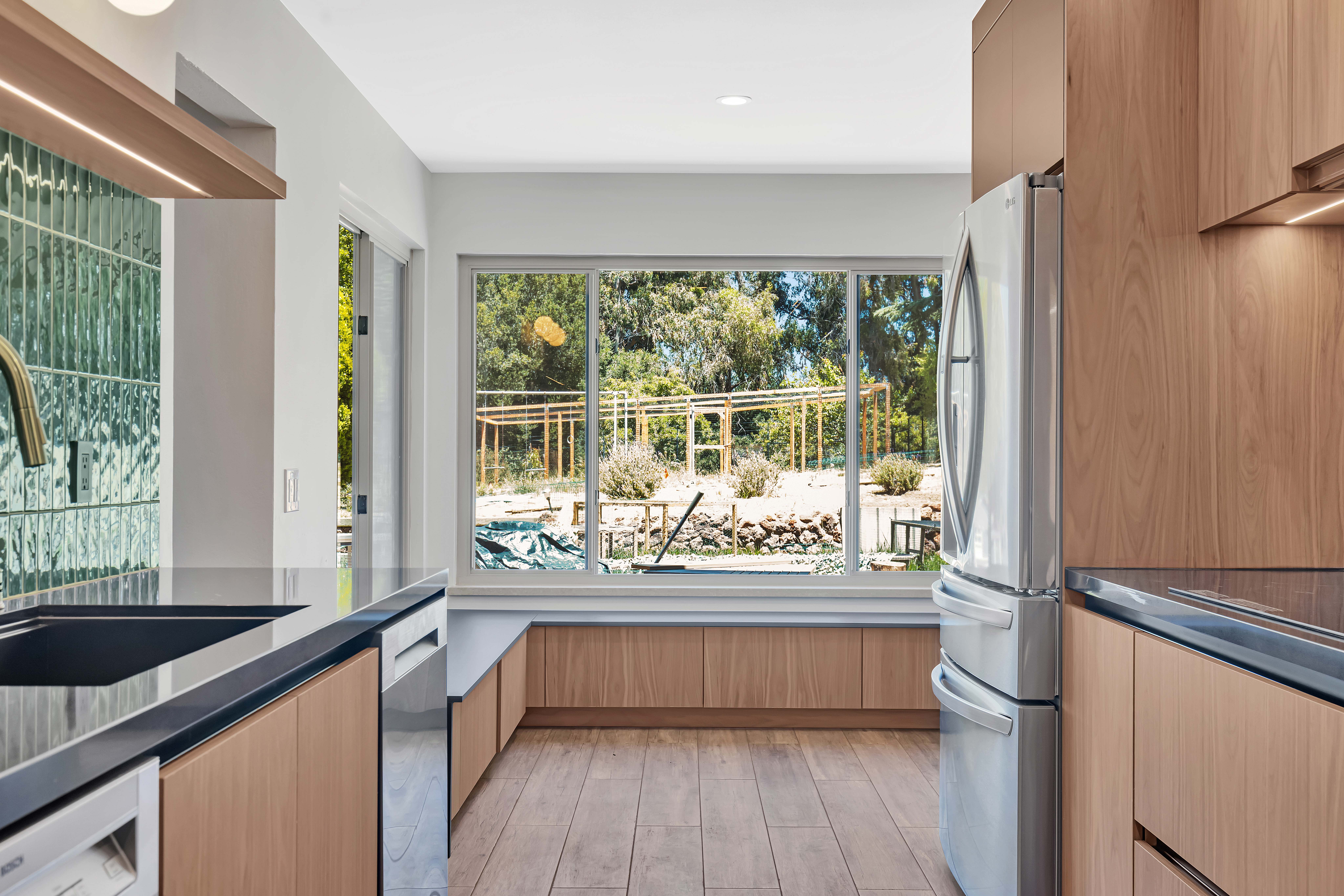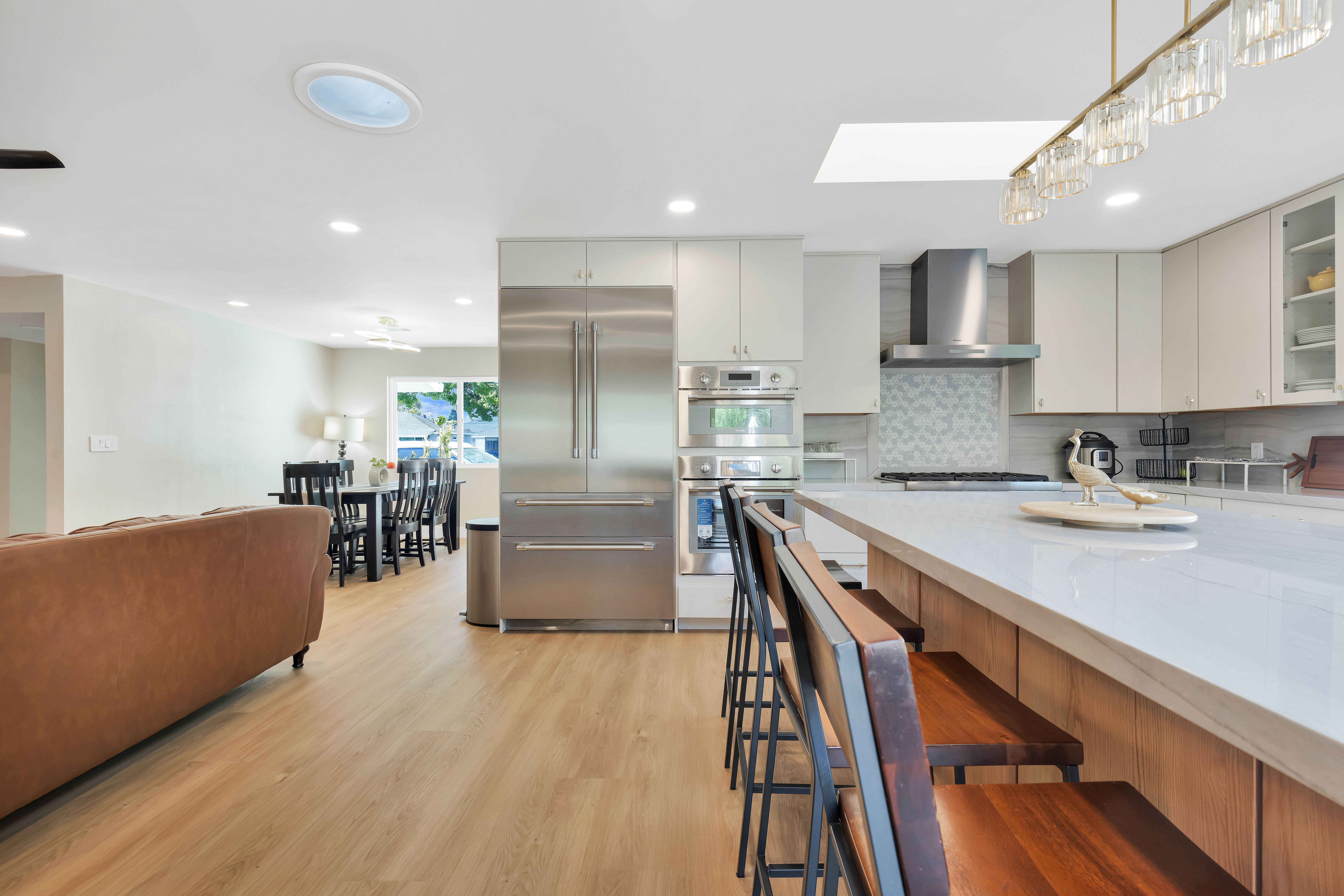Rust on bathroom fixtures occurs when metal surfaces are exposed to moisture and air, leading to oxidation. Bathrooms, being naturally humid environments, often provide the ideal conditions for this reaction, especially when combined with hard water and poor maintenance practices.
Over time, even small scratches or chips in a fixture’s coating can accelerate rust formation. Rust not only affects the appearance of your fixtures but can also weaken their structure if left unaddressed. Here is the list of things that cause rust on bathroom fixtures:
- Humidity
- Hard Water
- Poor Cleaning Practices
- Scratched Fixtures
- Lack of Proper Ventilation
- Leaky Faucets or Pipes
- Use of Abrasive Cleaning Products
- Low-Quality Materials
- Chemical Exposure
1. Humidity
Bathrooms are naturally humid environments, with constant exposure to moisture in the air due to showers, baths, and sinks. This creates an ideal condition for oxidation, the chemical reaction that causes rust. Over time, the prolonged presence of water vapor can lead to rust forming on metal surfaces, especially in poorly ventilated spaces where moisture has nowhere to escape.
2. Hard Water
Hard water, which contains high levels of minerals like iron and calcium, is a common culprit behind rust formation. When water evaporates, it leaves behind mineral deposits. If these deposits include iron, they can oxidize and cause visible rust stains on your bathroom fixtures. The higher the mineral content in your water, the faster this process can occur.
3. Poor Cleaning Practices
Failing to clean bathroom fixtures regularly allows dirt, soap scum, and mineral deposits to accumulate. These residues can trap moisture against the surface of the fixture, creating a perfect environment for rust to develop. Without routine maintenance, even high-quality fixtures can become susceptible to rust over time.
4. Scratched Fixtures
Scratches or chips in the protective coatings of metal fixtures expose the underlying material to water and air. This exposure accelerates the rusting process, as unprotected metal is highly vulnerable to oxidation. Even minor scratches can become problem areas if not addressed promptly.
5. Lack of Proper Ventilation
Poorly ventilated bathrooms trap moisture in the air, leading to increased humidity levels. Without adequate airflow, water vapor lingers and settles on surfaces, promoting rust formation on metal fixtures. Ventilation is crucial to keeping moisture levels under control and protecting your fixtures.
6. Leaky Faucets or Pipes
Leaky faucets or pipes cause water to drip continuously onto fixtures or surrounding surfaces. This prolonged contact with water speeds up oxidation and leads to rusting. Fixing leaks quickly is essential to preventing further damage to your bathroom fixtures.
7. Use of Abrasive Cleaning Products
Harsh cleaning products, such as those containing strong chemicals or abrasive particles, can strip away protective coatings from metal fixtures. Once these coatings are damaged, the underlying metal becomes exposed to air and water, making it more prone to rust.
8. Low-Quality Materials
Fixtures made from low-quality or poorly coated materials are inherently less resistant to rust. These materials often lack the durable protective finishes found in higher-end products, making them more vulnerable to corrosion over time.
9. Chemical Exposure
Certain cleaning agents, particularly those containing chlorine or other strong chemicals, can degrade the protective layers on metal fixtures. This exposure not only weakens the fixture’s defense against moisture but also creates conditions where rust can develop more quickly.
How To Prevent Further Rusting On Bathroom Fixtures
Preventing further rusting on bathroom fixtures involves addressing the root causes and taking proactive measures to protect them. Here are practical tips to prevent further rusting on bathroom fixtures:
- Improve Ventilation
- Wipe Fixtures Regularly
- Use Water Softeners
- Apply Protective Coatings
- Repair Scratches and Chips Promptly
- Fix Leaks Immediately
- Avoid Abrasive Cleaning Products
- Upgrade Fixtures
- Install Dehumidifiers
- Use Anti-Rust Sprays
1. Improve Ventilation
Proper ventilation is key to reducing humidity in your bathroom. Using an exhaust fan or opening windows after showers and baths allows moisture to escape, preventing it from settling on your fixtures. This simple step can significantly reduce the risk of rust.
2. Wipe Fixtures Regularly
After using your bathroom, take a moment to dry your fixtures with a cloth. By removing water from their surfaces, you prevent prolonged exposure to moisture that could lead to rust. This habit is especially important in humid climates or for fixtures near sinks and showers.
3. Use Water Softeners
Installing a water softener helps to reduce the mineral content in your water supply. By minimizing the buildup of calcium and iron on your fixtures, you lower the risk of rust formation and keep your bathroom looking cleaner.
4. Apply Protective Coatings
Using wax or specialty sealants on your fixtures creates a barrier that shields them from moisture and air. Regular application of these coatings can extend the lifespan of your fixtures and keep them rust-free for longer.
5. Repair Scratches and Chips Promptly
If you notice scratches or chips on your fixtures, address them immediately with touch-up paint or rust-inhibitor products. Sealing exposed areas prevents water and air from reaching the underlying metal, stopping rust in its tracks.
6. Fix Leaks Immediately
Leaking faucets or pipes should be repaired as soon as possible to avoid constant water exposure to your fixtures. Quick fixes not only save water but also protect your fixtures from premature rusting.
7. Avoid Abrasive Cleaning Products
Choose gentle, non-abrasive cleaners that are specifically designed for bathroom fixtures. These products clean effectively without stripping protective coatings or damaging the surface of your fixtures.
8. Upgrade Fixtures
Consider replacing old or rust-prone fixtures with ones made from high-quality, rust-resistant materials like stainless steel or brass. These materials are designed to withstand moisture and are far less likely to corrode.
9. Install Dehumidifiers
If your bathroom tends to retain excessive moisture, a dehumidifier can help. By actively removing moisture from the air, it creates a drier environment and minimizes the risk of rust forming on your fixtures.
10. Use Anti-Rust Sprays
Applying anti-rust sprays to your fixtures regularly can provide an additional layer of protection. These sprays are easy to use and are highly effective in prolonging the life of your bathroom fixtures.






